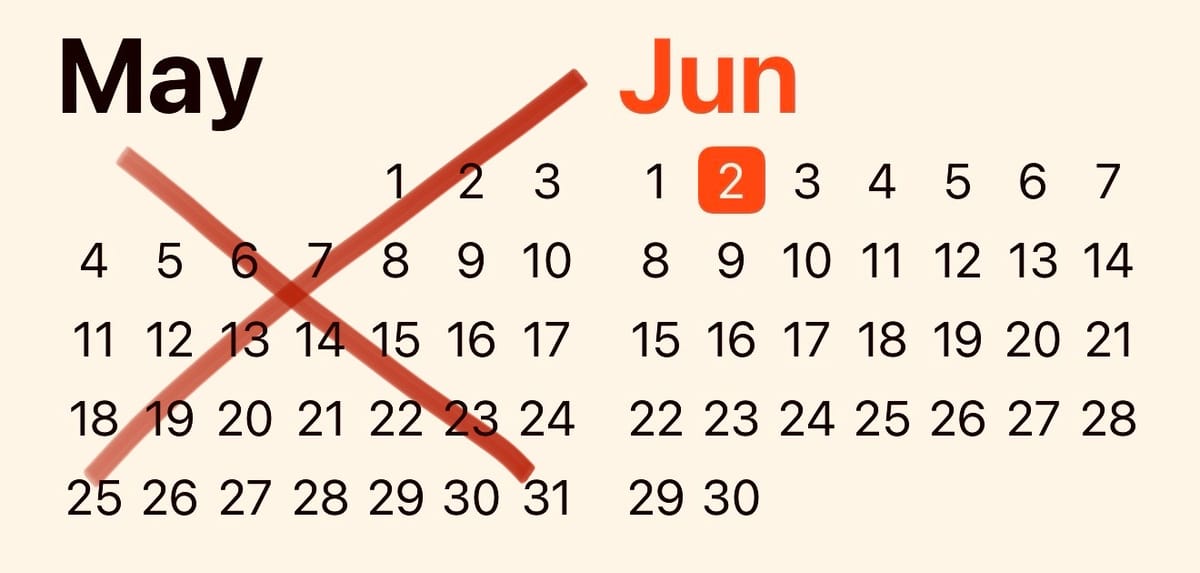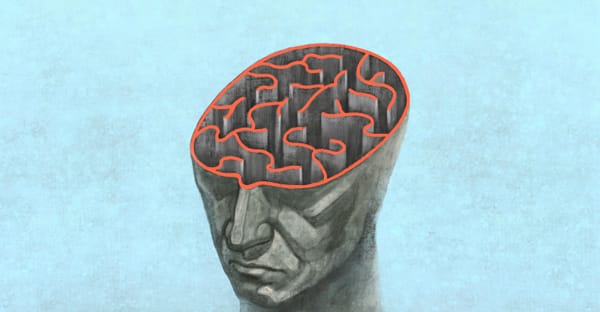Missing May
The Month I Didn’t Write, and Why It Mattered

Well, I missed May.
At least here I did.
Writing took a back seat to other things. I didn’t intend for it to, but I missed the first week… then fell behind… and eventually just gave it up.
Kind of ironic, really. May was supposed to be all about "adversity". And then, right on cue, I found myself living it instead of writing about it.
I struggled with approaching the topic because adversity can mean so many things. When I tried to write, everything on the page sounded like whining.
I’ve been through enough in life to know what real adversity looks like and this… this didn’t feel worthy of the label. It felt indulgent. It felt like failure.
I didn’t like how it sounded.
Familiar Territory
At first, I felt guilty for not posting that first week. Then came the shame. I had made a promise — to myself, to this project — and I didn’t keep it.
That familiar voice started whispering again: Here you go, starting something cool and not finishing it.
I began making excuses to justify the non-writing: the consulting work was ramping up, we adopted a new dog who needed a lot of time and energy, I was tired — maybe even a little depressed.
And the truth is… all of that was real.
What really got to me wasn’t the missed blog post. It was the way I turned on myself about it. I forgot that this is not only my work but also my art, not something I owe to a schedule or an algorithm.
Writing is my space, my outlet. The meaning I find in it belongs to me first. If others benefit, great — but that’s not why I started.
And yet there I was, beating myself up over something completely in my control… while feeling completely out of control.
Meaning in the Madness
I’ve said before that my most meaningful work of my life might exist right here on the pages of Happy Heading Nowhere.
Over the years, I’ve found meaning in many other places, especially working with people. Respect given. Respect earned. Moments of shared purpose and quiet understanding.
But this? This space? It’s different. It’s not about position or paycheck. It’s about helping others shape a daily philosophy for life and work — the balance I’ve spent a lifetime chasing and (sometimes) finding.
Journaling, meditating, writing have always been the tools I used to make sense of the stress, the mundane, the grind. They helped me survive long and uncertain seasons.
Writing this blog isn’t a job, not really. No one’s holding me accountable. But somehow, to actually do it, I have to treat it like a job. I’m not sure why that is.
Maybe I need the structure.
Maybe I’m addicted to the pressure.
Maybe I need a little drama to get the words out.
It’s funny — we often mistreat or neglect the people we love most. Not because we don’t care, but because we trust they’ll still be there. Maybe that’s how it is with the things we love, too.
Writing. Art. Creating. Traveling. Time with people who matter. The very things that bring us life are often the first things we abandon when we feel off-track.
There was a time when writing — even just scribbled journaling — felt like it was saving my sanity. Now that I’m more grounded, the urgency isn’t there.
But maybe that’s the next evolution: learning to write not from crisis, but from clarity. Not to survive, but to stay connected to meaning.
What Resistance Teaches Us
Even now, I’m learning: as much as I’ve grown, I still procrastinate. I still resist. Maybe it’s in my DNA.
Maybe when something starts to feel like work, I want to control it, or ignore it, or walk away before I fail.
If this work matters — if it’s part of the legacy I want to leave, then I can’t keep pushing it aside.
Even when I’m tired.
Even when I’m low.
Even when life is loud.
Especially then.
Listen, everybody has to put bread on the table. We need jobs for money, for benefits, for security.
Taking care of business is necessary, not just for survival, but to create space for the things we love.
There are good, valid reasons why we don’t always pursue the work that matters most to us. But we compound the damage when we start fighting ourselves in the process.
In May, I hit both kinds of resistance — the external kind (job, life, stagnation), and the internal kind (self-doubt, shame, avoidance). And instead of pushing through it, I gave way.
Steven Pressfield writes about "Resistance" in The War of Art:
“Resistance will unfailingly point to true North — that calling or action it most wants to stop us from doing… We can navigate by Resistance.”
The truth is, I wouldn’t feel this much weight about missing May if the writing didn’t matter. And maybe the strength of my resistance only proves the importance of the work.
So here I am. Not writing because I “should.” Not because it’s a job. But because this work — these words — mean something to me.
Even when I forget.
Even when I resist.
Maybe especially then.
And maybe that’s the point.




